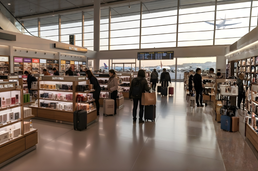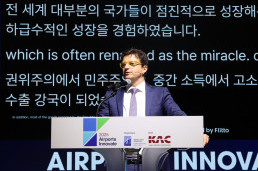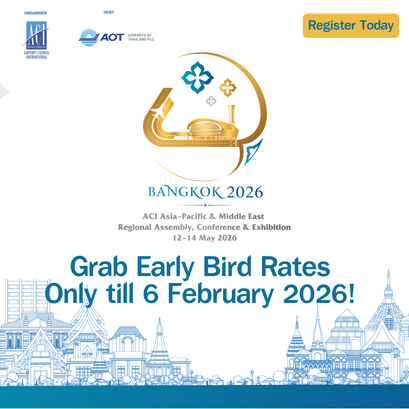
[Exclusive] Interview with ACI Asia-Pacific Director General Stefano Baronci: Asia Pacific's 2022 Air Travel to Recover 62pct of 2019's Traffic of 3.4BIL Passengers
- 2022-08-12
Airports Council International (ACI) Asia Pacific has forecasted that the region will record 62 per cent of air traffic recovery in 2022 compared to 2019 traffic of 3.4 billion passengers.
ACI Asia Pacific Director General Stefano Baronci said the early momentum of Asia Pacific was severely dampened in the second half of 2021 due to a resurgence of Covid-19 and the re-introduction of travel restrictions in the region.
He added that the region ended the year 2021 at only 43.5 per cent of its 2019 level, which equalled about 1.9 billion passenger loss compared to ACI Asia Pacific's pre-covid expectations.
"The loss in terms of revenue could amount to over US$40 billion for our region only. Full-year recovery to 2019 levels is expected by the end of 2024 but it could slip to 2025 if certain countries lag in lifting the remaining of the Covid-19
restrictions," Stefano told the New Straits Times in an interview here last week.
China, one of the region's highest contributors of international travellers, is still under lockdown.
It recently announced new travel rules, which included imposing a seven-day mandatory quarantine for overseas visitors.
The new measures were still considered to be one of the world's toughest travel requirements.
China has been Malaysia's third largest tourist source after Indonesia and Singapore since 2012. However, the number of Chinese tourists has dropped since the global lockdown in 2020 due to the pandemic.
Stefano said the ACI Asia Pacific was urging governments in the Asia Pacific to unilaterally relax the travel rules for international travellers and impose a standardised measure to ease inbound and outbound travel.
The standardised measure would also help better prepare the countries to tackle different Covid-19 variants or new pandemics in the future without closing the international borders.
"The Omicron variant gives us time to tweak and refine the (air travel) processes. If we don't take advantage of the time and if many countries continue to impose different jurisdictions, we will always have to expect probably 40, 50 or 60 per cent recovery (for air travel) and not more than that," Stefano said.
He added that having a seamless airport experience was one way to encourage passengers to travel and contactless airport boarding using biometric technology is a good example to reduce the number of person-to-person contact at airports.
Many airports in Asia Pacific have implemented the biometric system, including airports in Malaysia, which is operated and managed by Malaysia Airports Holdings Bhd (MAHB).
"If you have to fill out a lot of paper documents, if you have to do the test at departure and upon arrival, you cannot consider the market to be potentially a good opportunity despite the big volume of people that the country may have."
"In the case of Europe, North America, Latin America and the Middle East, which have opened a long time ago, they have reached 75 to 80 per cent of recovery, and this is something that Asia Pacific should look at," Stefano said, adding that these regions have long abolished the mandatory quarantine, testing and filling out forms before travel.
ACI Asia Pacific is an association representing the interests of airports in Asia Pacific and the Middle East.
Meanwhile, Stefano said airports in the Asia Pacific should diversify their revenue by expanding the non-aeronautical business given the slow recovery of air traffic in the region.
One way to do this, he said, was to develop an airport city such as MAHB's Aeropolis project while attracting more airlines to fly to the airport.
Ensuring that the airport can provide the infrastructure for sustainable aviation fuel (SAF) that airlines are targeting to use in the near future is crucial as well.
"We have to be prepared for it. There are many aspects that we still need to work on. We need a lot of preparation, a lot of research. We need the leadership of governments to make it possible. If you ask me today are the airports already have available infrastructure for providing SAF, no. They are working on it," Stefano said.
- CATEGORY
- COUNTRY / AREA
- Malaysia
- AUTHOR
- Bilqis BahariNew Strait TImes


![[Exclusive] Interview with ACI Asia-Pacific Director General Stefano Baronci: Asia Pacific's 2022 Air Travel to Recover 62pct of 2019's Traffic of 3.4BIL Passengers](/f/blog/3447/739c416/Stefano%20Baronci%20-%20DG%20ACI%20Asia-Pacific.jpg)





